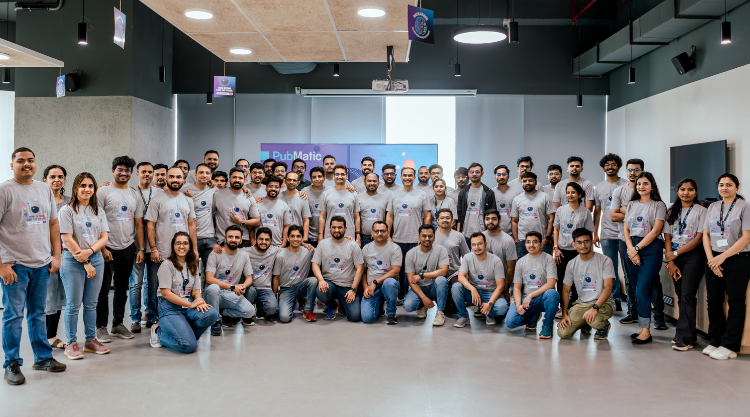The value exchange among consumers, publishers, and advertisers changes with every technological and societal shift. Last year, the industry wondered how to provide value to consumers of content and products as consumer tracking and privacy issues became more of a focus in government and business.
PubMatic’s Andrew Baron, Vice President of Marketplace, interviewed Alison Gensheimer, Head of Media Platforms and Innovation at Wells Fargo, and Luke Lambert, Head of Programmatic at media agency OMD, on AW360’s Uncommon Thinking podcast to delve into what to expect and what to keep in mind regarding the consumer experience, privacy, and audience addressability.
Everyone knows that advertising powers much of the online economy by helping to offset the costs of content production. One tradeoff is that online advertising cannot work without knowing your customers, or at least their needs and interests. That knowledge has historically come from being able to track them around the web. And while their actual names and identities are anonymous for the most part, their IP addresses and the cookies that attach to them are the most common ways of tracking them and driving commerce.
As cookies became “targeted” for destruction this past year as a way to meet societal and government demands regarding consumer privacy, advertisers and their partners are still trying to develop a system of tracking and identification that is aligned with new regulations but also does not mitigate their ability to advertise effectively. Additionally, the consumer experience and relevance must not only be preserved, but somehow, become even better.
One of the biggest challenges for the ad-marketing industry in the coming year lies in resolving these issues satisfactorily, while also making clear to all constituencies that the process is not swift, according to both Gensheimer and Lambert.
The industry must temper expectations because a single solution won’t be sufficient. Myriad solutions are needed, and getting there will be a years-long process.
First off, consumers don’t want to be tracked or targeted, Gensheimer said. “They want more control. And we have to respect that as marketers. We got really excited about data and the technology that we had.”
While it’s desirable to use data and technology to enhance consumer targeting for the purposes of converting them to purchases, marketers also must keep the value exchange top of mind, she added.
“We have to listen to what the consumer’s asking for and how we rebuild the ecosystem that was built in a very simple piece of technology called a cookie,” which she said marketers used, and perhaps unwittingly abused, in the service of campaign objectives and measurement.
Lambert added that “addressability is what we’re trying to talk about. And I think it’s foundationally about knowing who you’re reaching.” Data partners have been able to secure more and more nuanced insights into whom advertisers are talking to, he said, and he doesn’t see that completely going away.
“We can expect to maintain some of that on the front end, regardless of what happens,” with privacy and regulation, he said. “The third–party cookie is going away, [but] third-party data providers may not be. If we look at the way they collected that data in a cookie, it’s been providing some of these poor [consumer] experiences.”
So how do advertisers obtain the best insights to reach the audience that the data tells them they need to reach while making consumers’ online experiences even better?
As “unfortunate slaves to the vanity KPIs” of digital media, Lambert said he and his colleagues should actually be aligning with business goals. Figuring out which entity is responsible for meeting which KPIs is also essential. If a KPI is as simple as the cost per acquisition (CPA), is that acquisition as valuable as media agencies think it is, he asked. It may not be worth spending a whole dollar to get someone to transact with a brand one time when meeting the goal requires multiple small transactions.
“Maybe I’m going to sell something for a dollar and it cost me a $1.10 to convert them,” Lambert explained. “So aligning those KPIs to the right business goals really becomes key. Is it our job to get the lowest CPA possible or is our job really to find a new customer and maintain that new customer? What is marketing’s role and media’s role to do exactly that? So that’s the big mental shift we’re making.”
“But I think that there’s some real opportunity here to make something new come out of the ashes,” Lambert said.





